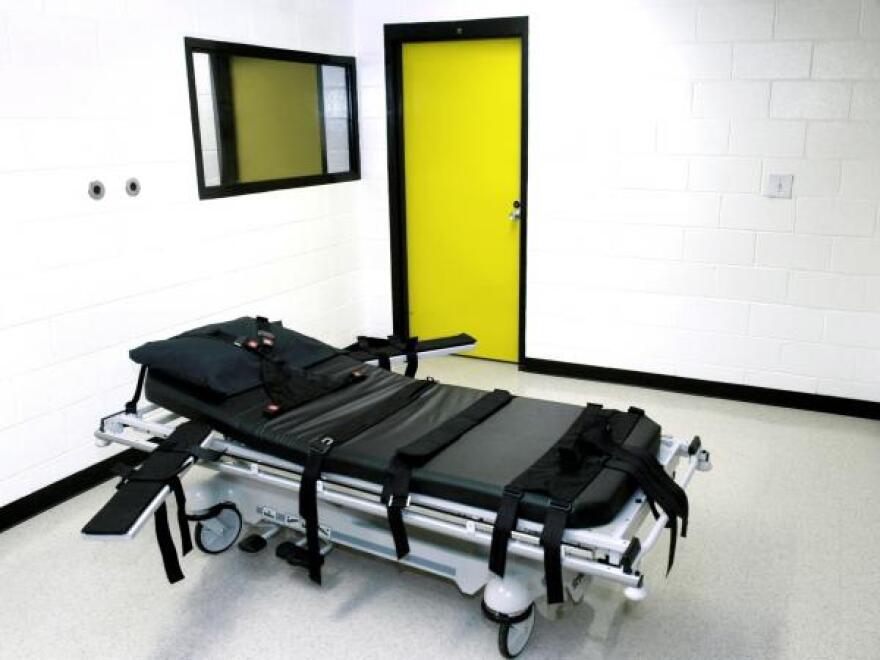Editor's note: This story has been updated throughout.
A U.S. Supreme Court decision Monday that upheld the use of an execution drug used in Oklahoma will not change how inmates in Texas are put to death, according to a Texas Department of Criminal Justice spokesman.
In a 5-4 decision, the Supreme Court ruled that the use of midazolam in executions in Oklahoma does not violate the Eighth Amendment's protection against "cruel and unusual" punishment. Oklahoma uses a three-drug method, known as a protocol, with midazolam, a sedative, as the first drug.
In its ruling Monday, the Supreme Court ruled that "petitioners provided little probative evidence on this point, and the speculative evidence that they did present to the District Court does not come close to establishing that its factual findings were clearly erroneous."
Death penalty opponents had argued that Oklahoma's use of the manufactured drug midazolam, which is used by Oklahoma and three other states, does not prevent pain and suffering.
The Texas prison system uses one drug now, pentobarbital, to execute death row inmates. However, the Texas system confirmed last year that it has purchased midazolam. Officials will not say how the drug is being used.
"The U.S. Supreme Court ruling does not have an impact on TDCJ," said Jason Clark, the agency's spokesman. "Midazolam is not utilized in our execution process."
Texas, which has executed 527 inmates since 1982 and has struggled with keeping execution drugs in stock for at least the past four years, currently has 40 vials of midazolam that will expire next spring.
In the case from Oklahoma that was decided on Monday, lawyers for Oklahoma death row inmates Richard Glossip, John M. Grant and Benjamin R. Cole Sr. asked whether the medical uncertainty about the effects of lethal drugs used in that state violates the Eighth Amendment.
Death penalty opponents have said that Oklahoma's use of the drug midazolam, which is used by Oklahoma and three other states, does not prevent pain and suffering. The Supreme Court ruling comes just over a year after the protracted execution of Clayton Lockett, who died 43 minutes after Oklahoma prison officials struggled to find a viable vein for injection of the drugs.
Since 2011, several states, including Texas, have had to scramble for lethal drugs as anti-death penalty activists switched strategies and began applying pressure to manufacturers of the drugs used by American prisons in executions.
First, Hospira Inc. announced it would stop providing the drug sodium thiopental after its Italian plant refused to manufacture it because of its use in execution chambers. Then, the Danish drug manufacturer of pentobarbital announced it was restricting the drug's distribution to keep it out of U.S. prisons.
After using a three-drug cocktail of sodium thiopental, pancuronium bromide and potassium chloride in executions for decades, TDCJ modified its protocol in 2011 when drug manufacturers halted shipments. Eventually, Texas ditched the three-drug formula, opting for one drug: pentobarbital.
Clark, the prison agency's spokesman, insists that Texas officials are sticking with pentobarbital and has no plans to switch at this time. In 2013, Texas prison officials had to turn to pentobarbital mixed by compounding pharmacies — facilities that can prepare small batches of drugs for a specific use. That's because TDCJ ran out of its manufactured supply of pentobarbital days before the execution of Michael Yowell, convicted in the 1998 murder of his parents.
Since then, compounded lethal drugs have been used in Texas and other states. But details about the potency of the drugs and who is providing them have been kept from the public in Texas since 2013, after a Houston-area pharmacist accused TDCJ of reneging on a previous deal that his participation in the execution process would be "kept on the down low."
Ever since, Texas prison officials have refused to provide the name of the pharmacy or pharmacies providing pentobarbital for executions despite a state judge ruling last December that said they must.
Lawmakers this past session approved a bill that becomes law Sept. 1 that will keep providers or lethal injection drugs, secret.
This article originally appeared in The Texas Tribune at http://www.texastribune.org/2015/06/29/scotus-ruling-lethal-drugs/.


